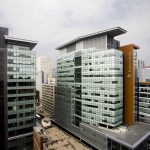Why journalism education needs the humanities
We often hear about how business majors and engineers need to have a liberal arts education. A long piece published in the Globe and Mail earlier this year made a strong case for keeping the humanities alive because business recruiters covet their graduates and focusing on STEM degrees alone comes at a cost. Businesses, like governments, absolutely do need the humanities; those who are in charge of our world’s most influential systems should understand the power dynamics and ethical frameworks that are at play when making decisions. But what about journalists, who are charged with conveying those systems to the rest of the world?
Journalism school graduates will be charged with reporting on complex topics, from climate change to health care to concurrent international conflicts. This begs the question of how journalism schools should best prepare them for these challenges, including how much more –– or less — of the humanities should be part of their curricula.
“Journalism requires understanding of complex issues, social, political, and economic even if students are not going on to careers in news journalism,” explains James Gillies, the chair of Journalism at St. Thomas University in Fredericton. “Having that in-depth background in some of these subjects makes students better and more informed writers and creators.”
Sonya Fatah is the associate chair at Toronto Metropolitan University’s School of Journalism and co-lead of the Canadian Press Freedom Project. “There is a great danger in only training people in tools; only training people in forms; only training people to be adept at merging both of those things without providing enough access to context,” she said.
“The whole point of coming to university is to blow your mind,” Fatah added, and that is something that humanities-based courses can provide. “You confront things you’ve never thought about, you learn things you never knew, and you get to be able to place those things in context and relevance.” Fatah has seen first hand how poorly-informed students can falter in their reporting, and she worries that undergraduates are not getting the well-rounded education they should. When she was teaching the masthead courses that cap off TMU’s J-School curriculum, Fatah received criticism from colleagues in other faculties who raised concerns over how students had asked questions or reported stories, which to her indicated there were gaps in students’ understanding of issues.
At New York University, one of the most well-regarded J-schools in North America, all journalism students must graduate with a second major, a requirement that has been in place since 2006.
“We think that students with subject-matter expertise have an easier time establishing themselves in certain beats,” explained Charles Seife, the director of NYU’s Arthur L. Carter Journalism Institute, “and that certain majors such as economics, mathematics, computer science, and others give them analytic and quantitative tools that make their journalism much stronger.”
Having in-depth knowledge of certain disciplines is a huge advantage for creating quality journalism. Generally speaking, most beats are directly linked to an arts or science specialization — from health, to meteorology, to music or civics — so all journalists can benefit from having gone through a well-rounded education in their undergraduate years.
Robert Townsend, the program director of humanities, arts, and culture at the American Academy of Arts and Science, pointed to the perspective that background knowledge provides when interviewing sources. “It gives you a sense of how to situate what they’re saying in a different context than, in some cases, what they would like to position it,” he said. It also facilitates thinking about stories in a bigger way rather than being led by “the specific issue of the day.”
Fatah did a bachelor’s degree outside of journalism before taking a journalism graduate program. She credits these foundations in other spaces as being helpful in journalism. “It’s not like you can ever know everything,” she said, “but you understand how to dissect and take information, you understand frameworks, you understand how a certain way of covering a community or covering an issue is connected to the history of that issue.”
TMU has a particularly intense concentration in journalism courses for its undergraduate students: at a minimum, they must take 19 journalism courses plus mastheads and/or internships. Undergraduate program director Adrian Ma pointed to the benefits of having space to refine a wide variety of skills, but also noted that there is an advantage to having a broader experience with humanities and science “so that you can do journalism with greater awareness of the historical and socioeconomic contexts in which their stories exist.”
Minors are not required for TMU students, but Ma says they see the value in it and that faculty encourage students to do minors, but he acknowledges that it is “not necessarily something that is hugely promoted.” This sets TMU apart from other Canadian J-Schools.
At Gillies’ STU, the Bachelor of Art in Journalism requires 36 credit hours of journalism core courses out of 120 required to graduate. According to Gillies, most students choose a major or minor in another program (as is standard across STU). The Concordia University undergraduate journalism program mandates 15 core journalism courses and students must take either a second major or a minor. Carleton University requires 16 core journalism courses to graduate in their honours of journalism program, and leaves 12 courses for either a combined honours, concentration in health science, or a minor plus free electives.
“We’re oriented around the idea of students graduating with a broad and fairly diverse educational experience,” said Aneurin Bosley, Carleton’s undergraduate supervisor for journalism. He added that “journalists have to understand how society functions,” and that “the more students can delve in more depth on those kinds of subjects, the better they’re going to be in order to report responsibility around those areas.”
University of King’s College requires students to take 60 of the 123 credit hours in journalism-specific courses. As with every other student at King’s, J-School students spend their first year in the Foundation Year Program, which is a “chronological study of great books and ideas, from the ancient to the contemporary world.”
Unlike NYU, however, double majors are not mandatory at any Canadian university. As to why this is not the case at Carleton, Bosley said they think that a mandatory minor is a “good middle ground” between subject specialization and having flexibility in course selection.
Richard Detweiler, author of The Evidence Liberal Arts Needs (2021), which sets out to quantify the benefits of a liberal-arts education, said that “whether one is studying journalism, engineering, mathematics, or philosophy, each of those people in each of those majors need to study broadly outside of their own disciplinary area.” Detweiler’s research suggests that long-term career success is related to taking over half of your courses outside of your major in university. “It’s the broadly educated, inquiring mind who knows how to pursue the kind of information that’s needed in the future as the opportunities and challenges facing humanity evolve and change,” he said.
Drew-Anne Glennie is a Master of Journalism student at Toronto Metropolitan University. She previously received an Honours BA in International Relations and Peace, Conflict, and Justice Studies. Her freelance work can be found in Ottawa Magazine, Spacing, Broadview, and the Hockey News. She previously served as editorial fellow for This Magazine as well the Head of Research at The Otter and is now completing an internship with Broadview.





